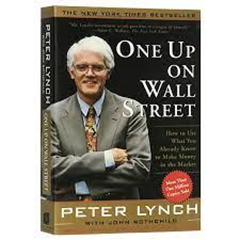Even though he retired 34 years ago in 1990, Peter Lynch is a legend on Wall Street. He started off as the manager of a tiny mutual fund at Fidelity Investments in 1977, and by 1990, when he retired, his fund was known as the #1 best-performing mutual fund during a 13-year tenure. The key to success for investors who want to earn Lynch-like returns? Patience, advises Mark Skousen, editor of Forecasts & Strategies.
Lynch’s Magellan Fund averaged a 29.2% annual return, more than double the S&P 500 Index. His favorite strategy to beat the market was to “buy what you know” (Maxims of Wall Street, p. 72). He added, “If you like the story, buy the stock.” If you see a product that you like and everyone else likes, buy the stock. It is a simple but powerful strategy. And most of the time, it works.
Over the years, my wife and I have bought lots of automobiles and trucks of different makes — Chevrolet, Ford, Chrysler, BMW, Volvo, Honda, even an MGB back in the day. But for years now, we have been buying Avalons, built by Toyota Motor (TM). Today, we have three cars, all Avalons, and find them to be comfortable, safe, and reliable.
 So, last November, I recommended Toyota Motor in one of my trading services. It worked out pretty well. Our Toyota stock was recently up 17%, and our call options advanced over 440%! It’s not quite a “ten bagger,” as Lynch calls it, but we’re on our way.
So, last November, I recommended Toyota Motor in one of my trading services. It worked out pretty well. Our Toyota stock was recently up 17%, and our call options advanced over 440%! It’s not quite a “ten bagger,” as Lynch calls it, but we’re on our way.
Peter Lynch quit at the top of his game in 1990 to spend more time with his wife and three children and has never looked back at how much money he gave up. Maybe he read “The Importance of Living,” by Lin Yutang.
Interestingly, after managing the Magellan Fund for 13 years, Peter Lynch confessed a shocking fact — one of the greatest ironies in Wall Street lore. Despite his incredible track record, most investors in the Magellan Fund lost money!
How is this possible? Simple. A Fidelity study showed that the majority of investors in this open-ended mutual fund did not stay invested during the entire 13-year period. They often bought the Magellan Fund at the top of the market and then panicked during a downturn and sold their position.
Investors were simply too undisciplined and afraid to stay invested in an open-ended fund that they could sell at any time without penalty.
What should investors have done? J. Paul Getty said it best: “The seasoned investor buys his stocks when they are priced low, holds them for the long pull rise and takes in-between dips and slumps in his stride…The big profits go to the intelligent, careful and patient investor” (p. 136).










